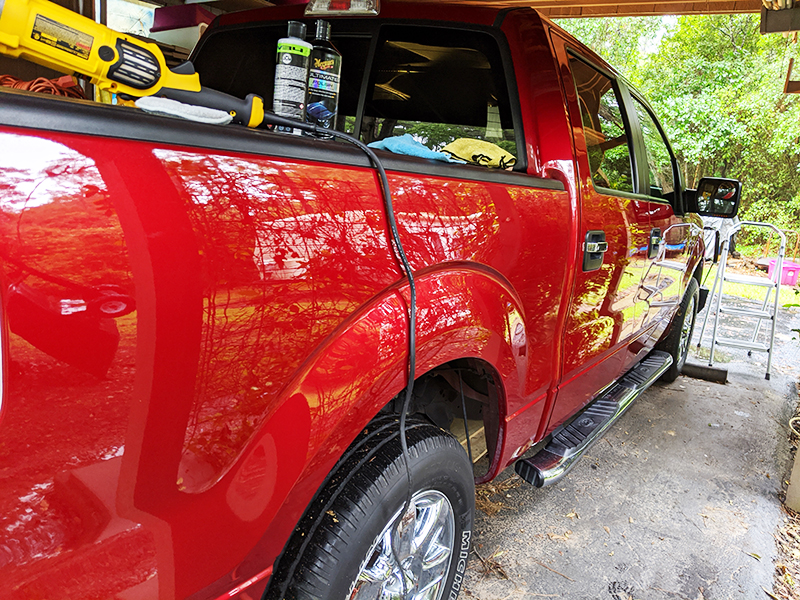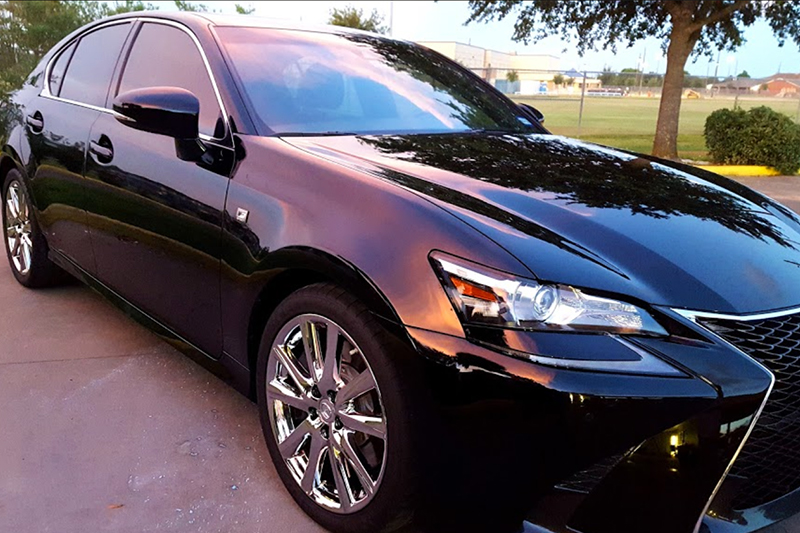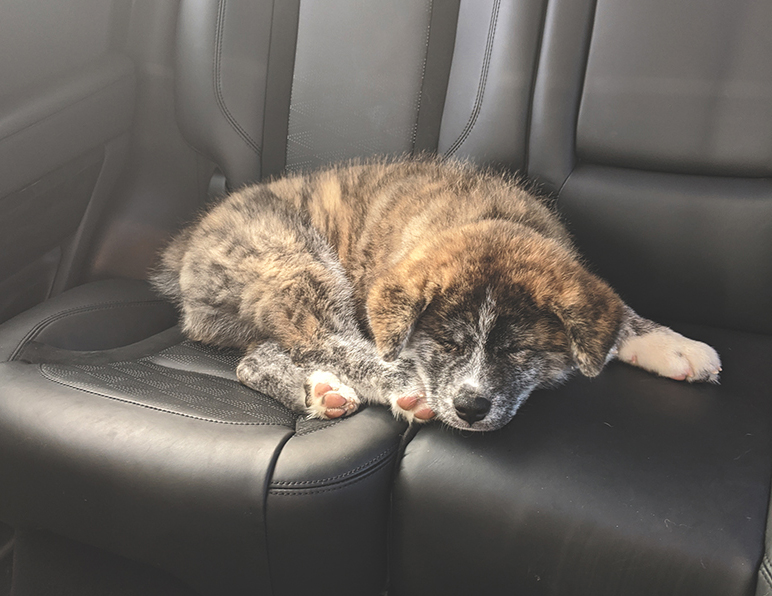Buying a car from a dealership is the preferred option for many who wish to ensure they purchase a quality vehicle with maximum convenience and total confidence of consumer protection if things go wrong. There’s a premium that you pay for gaining this kind of peace of mind, however, but people generally know and accept it all the same.
The world of added fees in the world of car dealerships is actually far more complex and intricate than you imagine. You naturally assume many of the things you pay for are above board and par for the course, but there are in fact many additional fees that you should dispute with the dealership and never pay for. Those are the fees that we are talking about in today’s blog post.
Don’t get us wrong, we’re not saying that every added fee is there to try and rip you off. There are of course some legitimate ones. The dealership depends on these reasonable fees to make up a significant portion of their annual profit. The fact remains that many dealerships sell cars at the invoice price at which they get them from the manufacturer, meaning there’s little to no profit being made on the direct sales of cars themselves.
Let’s start by understanding why there are additional fees in the first place, and which ones are the legitimate ones that you don’t have to worry about.
Why Do Dealerships Add So Many Fees?
As we touched on above, there appear to be so many additional fees that come with your dealership purchase than any you would pay when buying a car privately because it is through these fees that dealerships make money. This is the principal driving force behind their existence. Through these fees, plus the bonuses they can get from manufacturers for each unit sold, or a quote of a particular model unit being sold that the manufacturer wants to push, dealerships start to build a picture of profitability for each year.
Another reason for some of the additional fees is compliance with local and state laws. For instance, there’s no getting around taxes, registration fees and even the “doc fee” in some cases. These are the types of fees that can rarely be dodged, and will up the bulk of our list below of legitimate fees that you don’t need to dispute.
What Dealership Fees are Legitimate?
Below are some of the fees that you will find on your invoice that you don’t need to worry about. The buyer invariably pays these fees wherever you are in the country and whichever dealership or car brand you are purchasing:
Registration & Title
One of the top reasons that people use dealerships to buy cars is the convenience. The dealership has the ability and authorization to perform some of the title transfer and registration processes for you. This makes it a lot easier than buying from a private seller, the title and registration for which you have to handle between you and the seller end to end.
In most states, the title fee is between $25 and $50, but in other states it’s more. Watch out for states like Florida, though, where car registration and title fees get well into the hundreds of dollars. In the US, costs for these things do vary widely from state to state. Where Delaware has a fixed $40 all-in registration, California charges $62 and then also the “Transportation Improvement Fee” of up to $175 to cover road use and repair. In any event, these are fees that you will always have to pay.
Sales/Property Tax
Once again, these vary greatly by state and region, but are unavoidable. Montana, Delaware and some other states have zero sales tax, but Oklahoma charges a rather steep 11.45 percent sales tax on new cars. You can ask your dealership to clarify how these are calculated, but you won’t negotiate your way out of paying the sales tax.
Destination Fee for New Cars
If the car you’re buying is brand-new, then you might see on the window sticker a mentioned “Destination Fee.” This is usually built into the invoice price of the car but may be mentioned as an item within the base price. This is also not something you can ask to be removed. To do so would be asking the dealership to agree to a price below the already rock-bottom invoice price that they are using to sell the car to you in the first place.
What you should be careful of, however, is a sign that a new destination fee has been added to your bill. The destination fee you are paying is part of the invoice price. If it appears to be a separate and additional fee, then you should talk to the dealership about that.
Doc Fee
The so-called “doc fee” refers to the money charged by a dealership to complete all your paperwork for the sale. It’s understandable that there would be some charge for that, but in some places like Colorado, that fee can get close to $600. It would be worth the risking of making one or tiny errors if only to potentially save that kind of money.
There is another issue with the doc fee, however, and that is that dealerships are not legally allowed to remove it from the cost of your vehicle. They can make a deduction in the sales price to help account for the difference, but they can’t legally strike the doc fee from the bill. It’s a matter of law that the doc fee be maintained within your invoice.
That’s useful knowledge because some dealerships actually adjust the price to account for the doc fee — so, in effect you’re not paying it at all — but it still appears in the invoice and people complain about it. When you know that it always has to appear, then you can understand and in the most legal sense of the word, you pay this fee. Most places have a doc fee under $100. Even in California, known for its otherwise expensive living, the doc fee is typically $85.
What Dealership Fees Can I Dispute?
We should preface the below list by pointing out that there is no guarantee at all that a dealership would accept your request to remove certain fees. Ultimately, they have to agree to remove the fee because they aren’t charging you anything illegally. If you make the request, there’s a good chance they will accommodate you if only to stay competitive against other dealerships, but remember that you’re not catching them doing anything illegal.
Here are the fees that you can at least dispute and negotiate with the dealership. Reputable dealerships will either minimize or remove them when you voice your concerns.
Extended Warranty
The extended warranty is thought by many to be the ultimate “unnecessary purchase” when it comes to buying a new car. They can be useful when buying a pre-owned car on which the original warranty might have expired. A special pre-owned warranty on the car that acts something like an extended warranty can be a good thing when things unexpectedly go wrong.
In the vast majority of cases, however, and especially when you are buying a new car, there is no need for the extended warranty. It can anywhere from $1,000 to $2,000 to the cost of your car, but is so often sold as “for just an extra $15-20 a month.” Depending on what your monthly payment would be without it, it could be adding anywhere from 5 to 10 percent on top of your loan repayment.
Perhaps we are being too harsh on the extended warranty. It’s not an entirely useless concept, but it’s just not something you should automatically pay for when you buy a new car. When the dealership is very keen indeed that you purchase this warranty — the same way Apple is always trying to convince you to buy Apple Care for your devices — you can regard it as likely an expense that mostly benefits the seller and not the buyer.
Things have been changing quickly, though. The average time that Americans hold on to cars is getting longer. It was estimated back in 2019 by HIS Markit data that the average American is now keeping their car for almost 12 years (11.8 to be precise). Since just about no manufacturer warranty lasts for 12 years, an extended warranty might just prove useful. Regardless, you have plenty of reason to question the extended warranty.
CarFax or AutoCheck Reports
When you’re buying a used car, one way that dealerships sweeten the deal and make things easier for you is to purchase, keep and then share with you reports on a car’s service and other history from CarFax or AutoCheck. These are useful for proving the vehicle’s previous ownership, maintenance checks and other work done. Since they come from an objective source, they are a great help to put buyers’ minds at ease when purchasing pre-owned cars.
These reports however are obtained, paid for and stored as a normal part of running their business. There’s no legitimate or fair reason that they should pass that cost onto you. Having the reports are a part of their sales and operation costs. They help to secure sales and make the buyer feel better about what they are purchasing.
Without the CarFax report, the dealership only has its own in-house inspection report, about which some skeptical buyers may have their suspicions. The objective reports from AutoCheck and CarFax are more effective. To pass that kind of expense onto you is unfair, like trying to make you pay for the fact that they washed the car earlier in the week to make it presentable for your viewing (more on that one below).
Existing Upgrades
This is one of the borderline sneaky charges that should always be disputed. If you are being asked to pay for so-called upgrades to the car that haven’t been carried out on-site at the dealership, then you shouldn’t pay those fees, not at all.
For example, let’s say you are looking around the dealership lot and you see a brand-new car you want that also happens to already be in the right color with the right upgrades already made to it. It’s the exact trim level, has the special alloy wheel rim style you wanted, and even the additional privacy glass already there. It has a sticker price of $35,000 so you decide to take it as is.
To your surprise, however, you notice additional “upgrade” labor costs on the invoice. They charged you $400 for window tinting, and another $200 to swap out the alloys for those perfect rims that you wanted. This work has already been done, and the price was named. Why are you then paying for these things?
If you had chosen a different model and then requested window tinting or new alloy rims, then the charges would be legitimate, but this work has already been done and should now be built into that price of $35,000. Dispute immediately any additional labor costs that are added to existing upgrades to the car that you want.
Upholstery Fabric Protection
This one is fairly simple, but also a very common charge added to new car sales. The dealership will try to sell you a treatment to the car’s upholstery that has helped to make it more stain resistant. What they may omit from their pitch is that the vast majority of new cars arrive with a layer of upholstery protection already in place. What they’re selling you in reality is an additional protection, not a first line of protection. In nearly all cases, it’s an unnecessary expense with which you needn’t bother.
Nitrogen for the Tires
Getting pure nitrogen into the tires for a smoother and better ride is very “a la mode” these days. We’re not denying that nitrogen is a good gas to have in the tires, but we feel we should point out to potentially confused car buyers that the majority of what’s in your tires already — regular air — already is nitrogen. More than 70 percent of the air you breathe, and pump into your tires, is nitrogen.
Getting the additional few percent for the “pure nitrogen” experience will have very little real impact. You’ll only likely experience something of a placebo-like effect. When a restaurant is pushing an expensive imported water that doesn’t to your own palate taste any different from regular water, you ignore the upsell, right? Nitrogen in the tires is much the same thing.
“Dealer Preparation” Fee
This is a fee that we alluded to further above in our list. This fee is supposedly to help the dealer cover the costs of washing and vacuuming the car to make it presentable for sale. Once again, these are part and parcel of the dealership’s daily and weekly operations and costs. There’s no fair reason to pass these fees onto you, the buyer. What would the alternative be? They hand the car over while it is looking filthy and full of dust? They’re going to perform these tasks in any event, and there’s not one reason you should pay for them.
Marketing/Advertising Costs
Once again, why should you the buyer pay for the perfectly legitimate costs that dealerships expend in marketing or advertising the cars. These are the types of things that should be built into the base invoice price, and not charged separately to car buyers. If you see “Advertising” or “Marketing” costs on the bill, query it immediately.
Conclusion: Always Read the Invoice Line by Line
As we mentioned further above, these fees are one of the biggest ways that car dealerships make extra money. They also have the sale of accessories, the car service and maintenance departments, and so on. It’s not the only way they make money, but it’s a big part of it. In a way, you should approach your scrutinizing of the list from a place of understanding. They are running a business, and they are charging fees to try and make that business profitable. Nothing about what they are doing is against the law, so you’re not being cheated.
That being said, you always have to remain vigilant when you’re purchasing a car, even from a dealership. In the world of dealership sales, there is a heavy reliance on customers who are there to gain maximum convenience by using a dealership. They put a lot of faith in the dealership to get all the paperwork correct, and then they just sign on the dotted line and pay whatever is due. The fact is that you don’t have to accept that, and you have room for further negotiation over these fees.
Car sales is a competitive world, and dealerships should be open to discuss these items with you if they want to remain effective against others in the marketplace. You may have noticed a pattern in how some of these fees are presented. They are often fees for things that have cost the dealership little to nothing in any real expense, making them very significant profit centers. These are the ones that are typically easiest to negotiate away.
In any event, the lesson here remains the same, and that is always to examine the full itemized list of charges and fees on your invoice when buying a car. The dealership may not always agree to remove them, but you have to at least ask them about the charges and see what can be done first. If you really want to complete the sale, you’ll pay the fees. We only hope that you’re fully informed on fees that are typically not ones that the buyer does pay.



